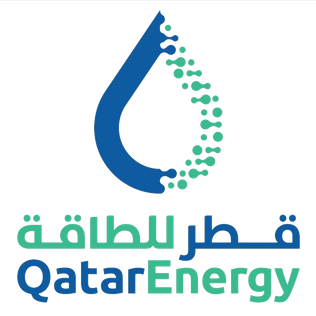
QSalt’s establishment is set to reshape Qatar’s manufacturing sector by introducing local production of a commodity that is essential for multiple industries, including petrochemicals, water desalination, and food processing. The project brings together prominent players in Qatar’s industrial ecosystem, including Mesaieed Petrochemical Holding Company (MPHC), Qatar Industrial Manufacturing Co. (QIMC), and Turkiye’s Atlas Yatirim Planlama.
The involvement of MPHC and QIMC, two of Qatar’s most significant industrial entities, underscores the importance of this venture. MPHC, a leading force in Qatar’s petrochemical industry, has a 40% stake in QSalt. Meanwhile, QIMC, known for its diversified manufacturing operations, holds a 30% share. Turkiye’s Atlas Yatirim Planlama also holds a 30% stake in the project, reflecting the growing collaboration between Qatar and Turkey in industrial ventures.
QatarEnergy’s TAWTEEN program, under which QSalt is being established, is an industrial localization initiative aimed at expanding Qatar’s industrial base and reducing reliance on imports. The establishment of QSalt is one of several initiatives under TAWTEEN to support Qatar’s ambitious economic diversification goals, particularly in non-hydrocarbon sectors. The program is also designed to foster local talent and expertise, in line with the broader vision of creating a sustainable knowledge-based economy.
The development of Qatar’s salt production capabilities is seen as a strategic move, given the region’s growing demand for chemical products and industrial inputs. Currently, Qatar and its neighboring Gulf Cooperation Council (GCC) countries rely heavily on imported salt and related chemical products. By establishing a local manufacturing base, Qatar aims to reduce import dependence, enhance supply chain security, and create new export opportunities for regional markets.
QatarEnergy’s focus on localizing the production of essential chemical commodities aligns with the broader economic vision outlined in the country’s National Vision 2030. This long-term development plan emphasizes economic diversification, sustainability, and the promotion of innovation-driven sectors. With QSalt, Qatar is positioning itself to become a leader in the production of salt products not only within the region but also in the global market.
The chemical derivatives produced by QSalt, particularly caustic soda and chlorine, are critical to a wide range of industries, including oil and gas, paper and pulp, and textile manufacturing. Caustic soda, for instance, is used extensively in water treatment plants and in the refining of bauxite to produce aluminum, one of Qatar’s key industrial exports. Chlorine, on the other hand, plays a vital role in disinfecting water and is also used in the production of polyvinyl chloride (PVC), an essential material for construction.
QSalt’s production capacity is expected to significantly reduce Qatar’s import bill for salt and related chemicals, while simultaneously increasing its export potential. By creating a regional hub for salt production, Qatar will be able to meet the growing industrial demand both domestically and across the GCC. The project is anticipated to create hundreds of new jobs, with a focus on employing and training local talent, further strengthening the country’s industrial workforce.
The inclusion of Atlas Yatirim Planlama, a Turkish firm with expertise in industrial project planning and execution, reflects the broader cooperation between Qatar and Turkey. In recent years, the two countries have strengthened their economic ties, with a focus on collaborative projects in industries such as construction, defense, and manufacturing. This partnership adds a layer of expertise and international experience to QSalt’s operations, bolstering Qatar’s ambitions of becoming a regional leader in chemical manufacturing.
QSalt is set to implement sustainable practices and green technologies in its production processes, in line with QatarEnergy’s commitment to environmental stewardship. The company plans to use state-of-the-art technologies that minimize waste and reduce energy consumption, ensuring that its operations align with the country’s goals for environmental sustainability. This focus on green manufacturing is part of Qatar’s broader strategy to balance industrial growth with environmental preservation.
Qatar’s leadership in the GCC’s chemical sector has been growing steadily over the years, with the country being home to several world-class petrochemical and fertilizer plants. The establishment of QSalt is poised to complement this existing infrastructure, creating synergies across multiple sectors and reinforcing Qatar’s industrial capabilities.
Industry experts are optimistic about the future of QSalt and its potential impact on Qatar’s economy. The project not only addresses Qatar’s immediate need for domestically produced salt and chemicals but also positions the country as a competitive player in the global market. The Middle East’s growing demand for industrial chemicals, coupled with Qatar’s strategic geographic location, offers QSalt significant export opportunities, particularly in rapidly expanding markets in Africa and Asia.
Topics
Live News
